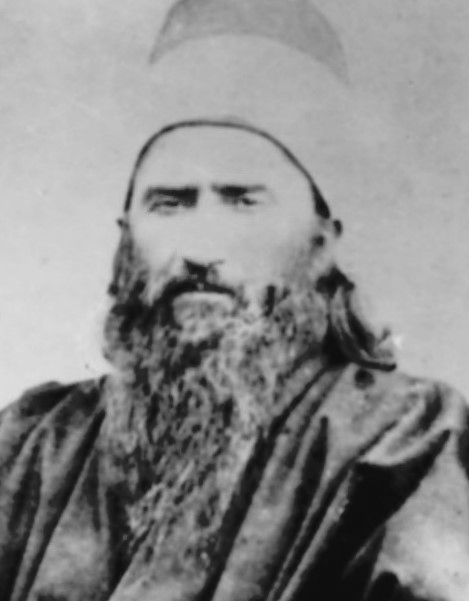
Baha'u'llah
(The Glory of God)
1868
Encyclopedia of Larousse
Baha’u’llah was born Mirza Husayn-Ali Nuri in Teheran in 1817 AD. With the declaration of his mission in 1863, he took the title Baha’u’llah, meaning “The Glory of God.” From 1844 he was one of the first adherents of the Bab, and devoted himself to the pacific propagation of his doctrine in Persia. After the death of the Bab he was, with the principal Babis, exiled to Baghdad, and later to Constantinople and Adrianople, under the surveillance of the Ottoman Government. It was in the latter city that he openly declared his mission. He was “He whom God would make manifest,” whom the Bab had announced in his writings, the great Manifestation of God, promised for the last days; and in his letters to the principal Rulers of the States of Europe he invited them to join him in establishing religion and universal peace. From this time, the Babis who acknowledged him became Bahais. The sultan then exiled him (1868 AD) to Acca in Palestine, where he died in 1892 AD (May 29).
Baha’u’llah had confided to his son, Abbas Effendi Abdul-Baha, the work of spreading the religion and continuing the connection between the Bahais of all parts of the world. In point of fact, there are Bahais everywhere, not only in Islamic countries, but also in all the countries of Europe, as well as in the United States, Canada, Japan, India, etc. This is because Baha’u’llah has known how to transform Babism into a universal religion, which is presented as the fulfillment and completion of all the ancient faiths. The Jews await the Messiah, the Christians the return of Christ, the Muslims the Mahdi, the Buddhists the Fifth Buddha or Maitreya, the Zoroastrians Shah Bahram, the Hindus the reincarnation of Krishna, and the Atheists—a better social organization! Baha’u’llah represents all these, and thus destroys the rivalries and the enmities of the different religions; reconciles them in their primitive purity, and frees them from the corruption of dogmas and rites.
Bahaism has no clergy, no religious ceremonial, no public prayers; its only dogma is belief in God and in his Manifestations (Zoroaster, Moses, Jesus, et al., Baha’u’llah). The principle works of Baha’u’llah are the Kitab-i-Ighan, the Kitab-ul-Akdas, the Kitab-ul-Ahd, and numerous letters or tablets addressed to sovereigns or to private individuals. Ritual holds no place in the religion, which must be expressed in all the actions of life, and accomplished in neighborly love. Everyone must have an occupation. The education of children is enjoined and regulated. No one has the power to receive confession of sins, or to give absolution. The priests of the existing religions should renounce celibacy, and should preach by their example, mingling in the life of the people. Monogamy is universally recommended, etc. Questions not treated of are left to the civil law of each country, and to the decisions of the House of Justice, instituted by Baha’u’llah. Respect toward the Head of State is a part of respect toward God. A universal language, and the creation of tribunals of arbitration between nations, are to suppress wars. “You are all leaves of the same tree, and drops of the same sea,” Baha’u’llah has said.
Briefly, it is not so much a new religion as Religion renewed and unified, which is directed today by Abdul-Baha.
(Nouveau Larousse Illustre, supplement, p. 66, circa 1909)
Recommended works on Babi and Bahai history.
See About the Reform Bahai Faith for further details.
